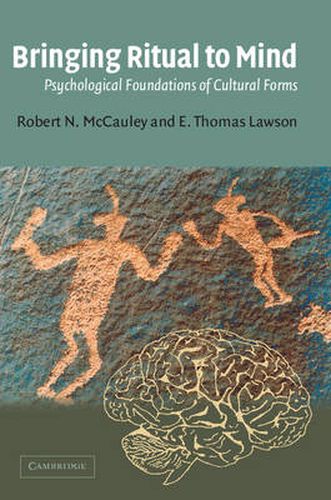Readings Newsletter
Become a Readings Member to make your shopping experience even easier.
Sign in or sign up for free!
You’re not far away from qualifying for FREE standard shipping within Australia
You’ve qualified for FREE standard shipping within Australia
The cart is loading…






Bringing Ritual to Mind explores the cognitive and psychological foundations of religious ritual systems. Participants must recall their rituals well enough to ensure a sense of continuity across performances, and those rituals must motivate them to transmit and re-perform them. Most religious rituals the world over exploit either high performance frequency or extraordinary emotional stimulation (but not both) to enhance their recollection (the availability of literacy has little impact on this). But why do some rituals exploit the first of these variables while others exploit the second? McCauley and Lawson advance the ritual form hypothesis, arguing that participants’ cognitive representations of ritual form explain why. Reviewing evidence from cognitive, developmental and social psychology and from cultural anthropology and the history of religions, they utilize dynamical systems tools to explain the recurrent evolutionary trajectories religions exhibit.
$9.00 standard shipping within Australia
FREE standard shipping within Australia for orders over $100.00
Express & International shipping calculated at checkout
Bringing Ritual to Mind explores the cognitive and psychological foundations of religious ritual systems. Participants must recall their rituals well enough to ensure a sense of continuity across performances, and those rituals must motivate them to transmit and re-perform them. Most religious rituals the world over exploit either high performance frequency or extraordinary emotional stimulation (but not both) to enhance their recollection (the availability of literacy has little impact on this). But why do some rituals exploit the first of these variables while others exploit the second? McCauley and Lawson advance the ritual form hypothesis, arguing that participants’ cognitive representations of ritual form explain why. Reviewing evidence from cognitive, developmental and social psychology and from cultural anthropology and the history of religions, they utilize dynamical systems tools to explain the recurrent evolutionary trajectories religions exhibit.